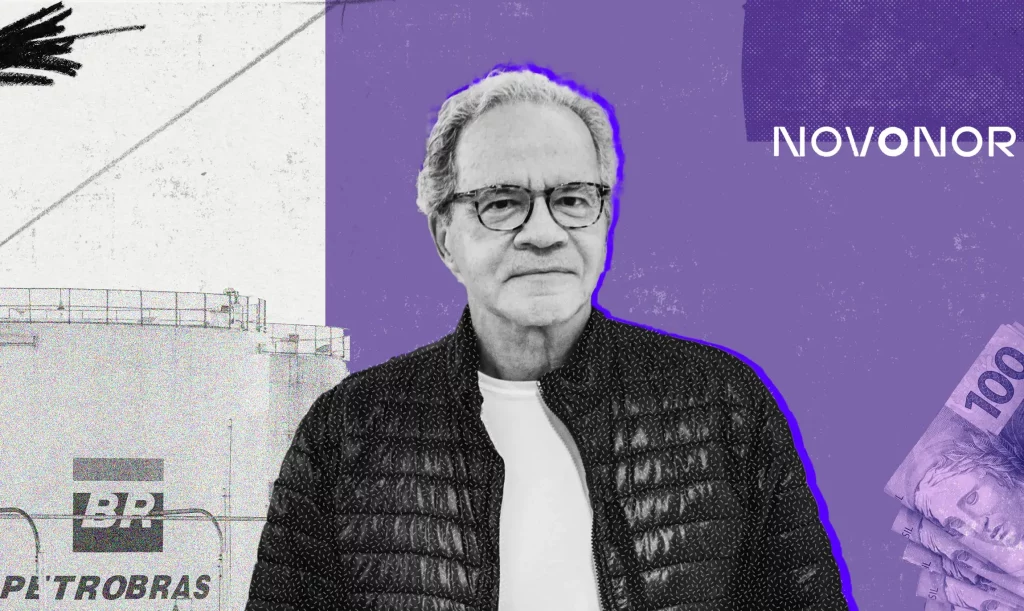Braskem petrochemistry faced financial challenges due to industry downturn and environmental disaster, but now even its strong financial reserves are being depleted.
Moody’s and Fitch downgraded the Brazilian company’s rating this month due to ongoing cash burn and rising debt levels, with Braskem burning R $1.45 billion in cash in just the second quarter.
The company’s dollar bonds saw a significant increase in returns by 2030, reaching a record of 15.7% this week, which is higher than the 9% recorded just three months ago.
“If the company keeps spending cash at this pace, there will come a point where it won’t have enough funds to meet its obligations,” warned Fitch analyst Marcelo Pappiani. “We have been closely monitoring the situation for the past 12 to 18 months, but this recent quarter was the tipping point.”
Braskem suffered from excess production capacity in the petrochemical industry, the aftermath of an environmental catastrophe that led to a credit rating downgrade, and a recent stock sell-off driven by concerns related to an acquisition by Nelson Tanure, who specializes in distressed assets.

In addition to a 40% decrease in cash reserves during the 12 months ending in June, investors are finding it difficult to justify remaining invested in the company.
Fitch downgraded Braskem to BB- on August 12, its second downgrade this year. Pappiani warned of a possible further downgrade if the company does not show improvement within the next six months. The current metrics align more closely with B, B-, or even CCC levels.
Box on fire
Braskem ended the previous quarter with around $1.7 billion in cash, which decreased by approximately $1.1 billion from June 2024, and lowered its debt coverage to 30 months, down from 61 months in the same period the year before.
The company’s net debt rose by $235 million to $6.8 billion in the second quarter, which is equivalent to 10.6 times the Ebitda of the past 12 months, surpassing the 7.98 times reported at the end of March.
Braskem is contemplating refinancing its short-term debt by initiating discussions two years ahead of the payment deadlines, as reported by a source familiar with the matter.
The company is currently in talks with stakeholders to explore various financing possibilities, such as sale-leaseback and asset-backed operations, as well as tax credits monetization. Measures are also being taken to minimize cash outflow, according to an anonymous source.
Braskem investors
Trade disputes between the US and China, uncertainties about Braskem Idesa’s tariffs, and poor operational performance influenced the outcomes, according to analyst Filipe Botelho from Lucror Analytics.
Investors now require over three times the additional income to hold Braskem’s 2030 dollar bonds compared to similar US Treasury bonds, with the spread reaching about 1,014 basis points on Thursday. This surpasses the critical 1,000 basis point level seen as distressed.
Braskem is currently not in a critical situation as it does not have significant debt repayments due by 2028 and has sufficient cash to meet its previous obligations. Additionally, the company has a $1 billion international revolving credit line maturing in December 2026.
The company must implement measures as market conditions are not expected to improve until 2030, according to Moody’s analyst Carolina Chimenti. Failure to renew the RCF and address cash flow issues by mid-2026 could raise concerns if new risk reduction measures are not announced.
Braskem needs to promptly secure refinancing, even if it involves obtaining new debt at a higher rate or needing some form of guarantee, according to Chimenti. Additionally, the company should reduce expenses and investments, shut down underperforming plants, and consider selling assets to improve its cash flow.
“We must reduce spending, enhance our plant’s performance, and look for products that can improve our Ebitda, and that is precisely our current focus,” stated Roberto Ramos, CEO, in a teleconference with analysts.
Braskem’s dollar bonds experienced the biggest decline among emerging companies in the past month, with an average loss of 10.7%, compared to a 1.5% return for companies in developing countries in the same period.
Investors have been worried about Tanure’s offer, which has raised concerns about debt restructuring. However, the Brazilian magnate may withdraw from the deal due to uncertainties surrounding the costs of an enduring environmental catastrophe linked to the collapse of a salt mine operated by Braskem in Alagoas, as indicated by a source.
Company bonds increased following reports by The State of São Paulo that Petrobras was contemplating expanding its stake in Braskem, a joint venture with Novonor. Last month, Petrobras applied to be included as a third party in the assessment of Braskem’s possible sale to Tanure.
If Tanure does not make a purchase, prices may decrease slightly, but not entirely due to persistent operational challenges, according to Chimenti. By approaching 2028 with ongoing cash flow issues, the risk of refinancing becomes a topic of discussion.

